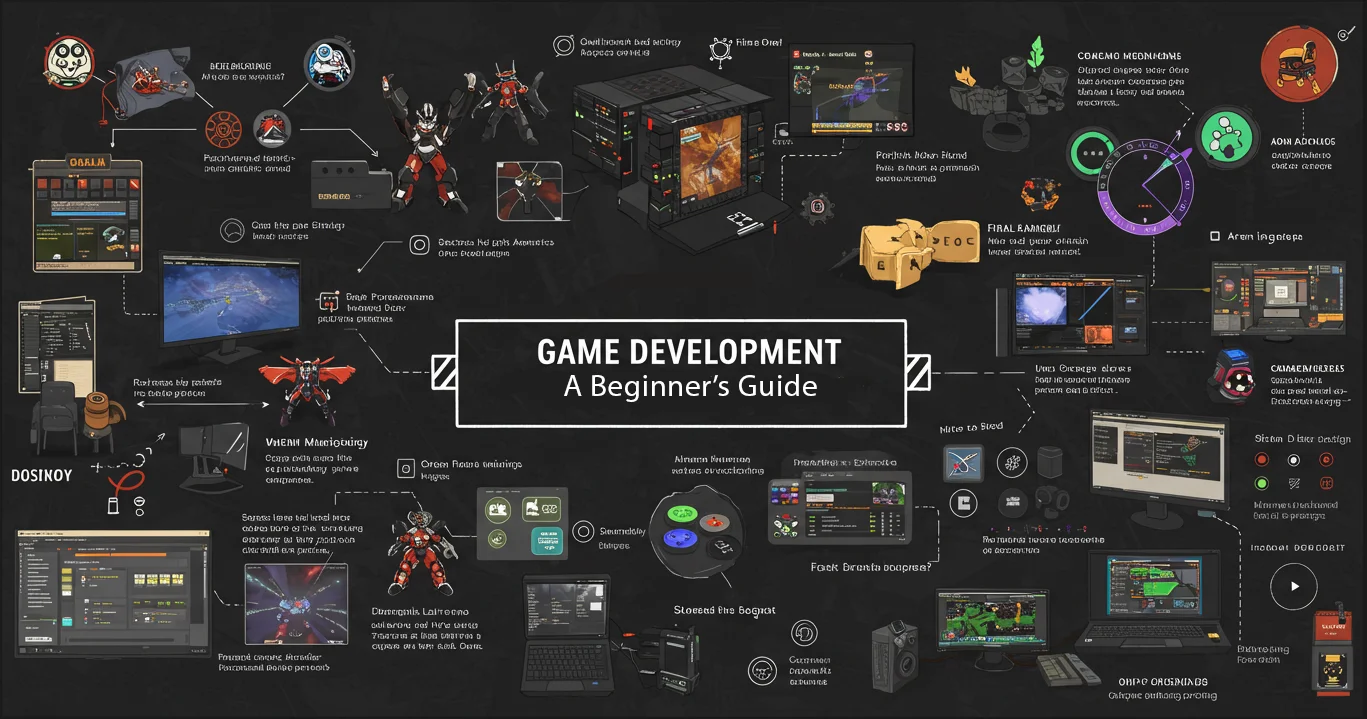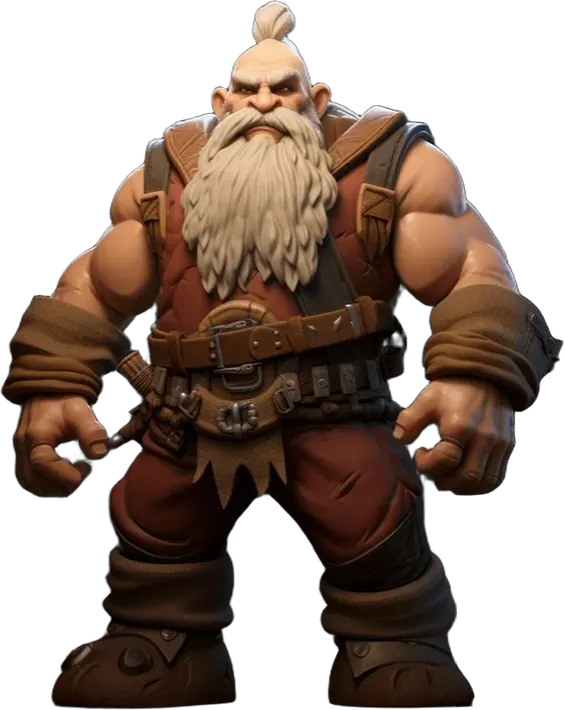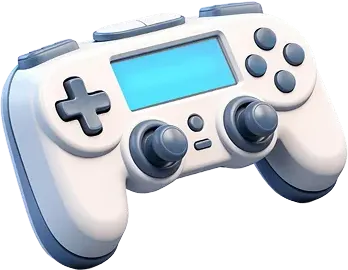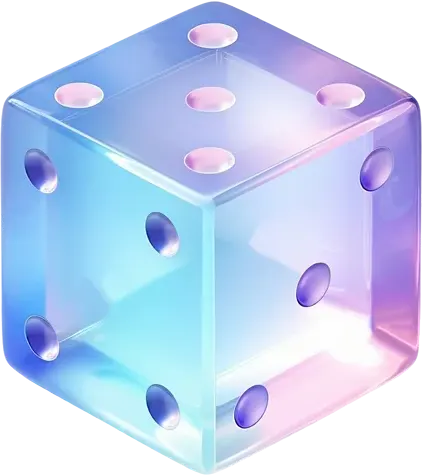
Have you ever sat there staring at the screen while holding a controller and wondering, “How in the world did someone even make this?” You have just come into contact with the enchantment of game creation. An army of creators is transforming inspiration into interactive reality behind every pixelated planet, dramatic plot, and heart-pounding boss fight.
Making a game is simply about crafting experiences. It can either be the very first time first-person shooting, the dainty feelings of an indie game story, or the furious rage of multiplayer; every game is an intersection of creativity and some splendid engineering. That’s why it is so appealing. It’s not technology, it’s creativity at its best.
If you’ve ever dreamed of immersing yourself in this universe, this game development introduction will provide you with the guide. We’re deconstructing what it actually entails to create games, the abilities you’ll have, the tools that professionals employ, and how you can begin creating your own mini-world from the ground up. Consider this your level-one course before getting to the main event.
Ready? Grab your drink, because we’re about to hit “Start Game.”
What Exactly is Game Development?
Game development is the process of designing, building, and refining video games. The very first stage of the game is idea generation, and the very last stage is when the players get the opportunity to download or stream the game. Everything in between is what we refer to as making a game.
Now, what’s so captivating is the fact that it is not a single concept. Instead, it is a synthesis of several ideas, including business, psychology, creative writing, visual design, and computer science. A AAA open-world game like The Witcher 3 has hundreds of professionals who adjust things like sound effects, weather dynamics, and face expressions. In contrast, a platformer like Flappy Bird may simply require code and art.
That is, game development where art and engineering come together. It’s the connection between imagination and interactivity.
Why Should Beginners Pay Attention to Game Development?
You may ask yourself, Why should I pay attention to game development if I’m a beginner? Here’s the truth: games are universal. They’re no longer limited to consoles and PCs. You will see them in mobile apps, VR training software, classrooms, therapy, and even corporate simulations.
For newbies, getting started with game development is thrilling because it’s the only industry where you can begin small but have the aspirations of bigness. With the tools of today, you can actually create a simple game on your laptop, publish it online, and see strangers in other countries play it. That freedom to create is unusual.
And the advantages don’t end there:
| Benefit of Learning Game Development | Why It Matters |
| Creativity unleashed | You design your own worlds, characters, and mechanics. |
| Career opportunities | From indie studios to AAA companies, game developers are in demand. |
| Transferable skills | Coding, UI/UX, storytelling, and problem-solving are useful beyond gaming. |
| Fun factor | Unlike many fields, you get to see your work come alive in real-time. |
| Growing industry | Gaming is bigger than movies and music combined, worth over $300B+. |
For newbies, game development learning is not just a way to acquire the skills for future employment but a way to become part of one of the most thrilling creative professions in the world.
What Are the Main Stages of Game Development?
Dividing the game development process into stages renders it much less intimidating. Every stage evolves from the last, similar to getting more missions in a campaign game.
Conceptualization
This is where the spark starts. Creators brainstorm the core concept of the game: What genre? What audience is it for? What about this game is going to be fun? Consider this writing your “game pitch.”
Pre-Production
In this stage, ideas turn into organized designs. Storylines are scripted out, concept art is drawn, and prototypes are created. Creators play around with mechanics to determine if the game is going to be fun.
Production
This is the “grind phase.” Programmers type thousands of lines of code, artists develop 2D or 3D games, sound designers record sounds, and level designers construct worlds. This stage for large-scale games can take years.
Testing
Otherwise referred to as QA (Quality Assurance). Here, developers look for bugs, balance gameplay mechanics, and verify that everything is working smoothly. Nothing destroys a good game quicker than glitches.
Launch
After endless tweaking, the game is released to players on platforms like Steam, Xbox, PlayStation, or mobile stores. Marketing campaigns and trailers kick in to attract attention.
Post-Launch Updates
Even after launch, developers release patches, updates, and expansions. Many games thrive for years thanks to continuous updates.
If you’re new, imagine these game development stages as checkpoints; each one moves your project closer to “Level Completed.”
Confused about where to begin with game development?
Let RevolGames guide you step by step toward success.
What Skills Are Required for Game Development?
The best thing about game development is that it’s multidisciplinary. You don’t necessarily have to be an expert at all skills; you need to know your lane. That being said, these are the most critical skill sets:
1. Programming
Coding makes magic. C++, C#, and Python are popular. Strong programming ensures smooth gameplay mechanics and overall game performance.
2. Game Engines
Mastering tools like Unity or Unreal Engine is a necessity. These engines provide the framework that transforms ideas into interactive experiences.
3. Art & Design
2D/3D artwork, modeling, animation, and UI/UX design define the appearance and feel. Great visuals and intuitive design keep players immersed in the world.
4. Storytelling
Authors craft characters, missions, and dialogue to engage players. A compelling story gives meaning and depth to the gameplay experience.
5. Sound Design
Eerie footsteps to cinematic scores, sound transports players. Audio shapes the atmosphere and enhances emotional connections.
6. Project Management
Games are huge projects; management of timelines and teams is essential. Effective coordination ensures all elements come together for a successful launch.
For new users, the best advice is: learn one area and master it. You can always diversify later. For instance, begin by coding small prototypes, then go into designing characters or writing stories later.
What Game Engines Should Beginners Use?
Game engines are the game development equivalent of Lego sets, giving you the blocks and the guide to making your vision work.
| Game Engine | Why It Matters | Why It Matters |
| Creativity unleashed | You design your own worlds, characters, and mechanics. | Flexible, beginner-friendly, massive community support, tons of tutorials. |
| Career opportunities | From indie studios to AAA companies, game developers are in demand. | AAA-quality visuals, free to start, the Blueprints system helps |
| Transferable skills | Coding, UI/UX, storytelling, and problem-solving are useful beyond gaming. | Lightweight, open-source, beginner-friendly scripting language. |
| Fun factor | Unlike many fields, you get to see your work come alive in real-time. | Drag-and-drop interface, no heavy coding needed, great for small projects. |
Newcomers tend to begin with Unity as it offers ease of use and strong features. Unreal is ideal if you’re looking for cinematic-quality graphics, and Godot is ideal for indie devs who like things simple.
What Programming Languages Do Game Developers Use?
All games are based on code. But what you use is up to your aims and platform.
- C++: The behemoth behind most AAA titles. Heavy but very fast.
- C#: Unity’s preferred choice, ideal for 2D/3D newbies.
- Python: Ideal for learning about logic and quickly creating little games.
- JavaScript: For browser games and HTML5.
- Java: The default choice for Android mobile games.
For beginners, C# and Python are excellent starting places. They’re simpler to grasp but strong enough to create professional-looking projects.
How Significant Is Storytelling in Game Development?
Imagine playing a game where you have no goal, no character drive, and no direction. Boring, isn’t it? That’s why storytelling is the core of game development.
Good storytelling doesn’t necessarily equate to lengthy cutscenes. It might be environmental storytelling (discovering hidden journal entries in The Last of Us), or emergent storytelling (players making up their own stories in Minecraft).
A game development company tends to have writers on staff who do nothing but craft compelling narratives, dialogue, and character arcs into gameplay. Storytelling turns a solid game into an unforgettable experience.
What Kinds of Games Can You Make?
One of the best things about an introduction to game development is seeing how many genres are out there.
- 2D Games: Great for starters. Imagine Celeste or Hollow Knight.
- 3D Games: Engaging RPGs, shooters, or open-world excursions.
- Mobile Games: From hyper-casual, such as Flappy Bird, to intricate strategy games.
- VR/AR Games: Innovative ones such as Beat Saber.
- Multiplayer Games: Fortnite or Among Us type games live off social interaction.
All of these come with various development requirements, tools, and expenses. Initially, come up with something small. develop a mobile game or 2D game before venturing into challenging 3D or VR work.
What Are the Roles in a Game Development Company?
Making a game is similar to making a blockbuster film; it requires a whole team. Within a game development company, some of the most important roles are:
| Role | Responsibility |
| Game Designer | Defines mechanics, game-play rules, and user flow. |
| Programmer | Codes the logic, AI, and mechanics. |
| Artist/Animator | Creates characters, environments, textures, and movement. |
| Sound Designer | Builds immersive soundscapes and effects. |
| QA Tester | Plays the game to find bugs and glitches. |
| Producer | Manages budgets, teams, and deadlines. |
In smaller independent groups, an individual might fill more than one position, but AAA companies split roles with care.
Want to design a game that players can’t put down
What Are the Biggest Challenges in Game Development?
Game development is exciting, but it’s also challenging. Here are the biggest challenges:
- Time and Budget – Games usually take longer and cost more than anticipated.
- Technical Issues – Crashes and bugs can destroy projects.
- Balancing Gameplay – Either too difficult or too easy, and players quit.
- Creative Burnout – Programmers regularly experience crunch times.
- Market Competition – There are thousands of games coming out each month; it’s difficult to stand out.
These are the reasons why not all game concepts get to launch. However, perseverance and good planning enable game developers to thrive.
How to Get Started in Game Development?
This is a basic guide for newbies venturing into game development:
- Begin Small – Create copies of older games such as Pong or Tetris.
- Learn a Game Engine – Unity or Godot is perfect to begin with.
- Take Tutorials – Free tutorials on YouTube, Udemy, and Coursera are irreplaceable.
- Join Communities – Post progress on Reddit, Discord, or GitHub for critique.
- Practice Relentlessly – Each project, including failures, teaches something new.
Remember: your first game will not be perfect, but it will be your launchpad.
Is Formal Education Required for Game Development?
Not exactly. While there are mobile game design courses available in universities, most successful developers are self-taught. What really counts is your portfolio, the set of games you’ve actually created.
Udemy, Coursera, and even free YouTube tutorials can educate you just as well as a degree. Employers tend to be more interested in seeing your creativity and technical ability applied than in where you learned it.
What Are the Newest Trends in Game Development?
The gaming industry changes more quickly than nearly any other business. These are some of the most important trends transforming it:
1. Cloud Gaming
Services such as Xbox Cloud Gaming allow you to stream without requiring top-of-the-line PCs. This makes high-quality gaming more accessible to a wider audience.
2. VR & AR
Fully immersive game worlds for players. These technologies blur the line between digital and physical realities.
3. AI in Games
Intelligent NPCs, procedural generation, and dynamic difficulty. AI helps create more adaptive and personalized gameplay experiences.
4. Cross-Platform Play
Players come together across devices without a hitch. It fosters inclusivity and connects larger gaming communities worldwide.
5. Metaverse Integration
Persistent virtual worlds that combine gaming and social life. This opens opportunities for endless interaction, creativity, and digital economies.
These trends validate that the industry is not necessarily about games; it’s about reimagining how we engage with technology.
How Much Does It Cost to Make a Game?
Game development cost anywhere from pocket change to Hollywood-blockbuster prices.
| Type of Game | Estimated Cost |
| Indie 2D Mobile Game | $5,000 – $50,000 |
| Mid-Tier 3D Game | $100,000 – $500,000 |
| AAA Game | $10M – $200M+ |
Elements of cost are affected by the team size, equipment employed, and advertising. The difference between developing games for mobile versus console also plays a role, as each platform comes with its own cost considerations. Newbies are likely to focus on indie projects that fit within a manageable budget.
How can a Game Development Company assist newbies?
A professional game development company can turbocharge your experience. They provide:
- Professional skills in coding, art design, and testing.
- Proximity to sophisticated tools and software.
- Teams of experts in art, sound, and project management.
- Experience in steering clear of typical pitfalls.
For beginners, partnering with experts can mean the difference between a half-finished idea and a polished release.
Why Choose RevolGames for Your Game Development Journey?
If you’re serious about stepping into this world, you’ll want allies who know the battlefield. That’s where RevolGames comes in.
RevolGames is more than just another game development company; they are passionate developers who turn wild ideas into enjoyable games. RevolGames has the expertise to help you realize your ideas, whether they are for a funny mobile game, a multiplayer battle royale, or even a virtual reality experience.
They offer:
- Complete Services: From conception to post-launch assistance.
- Innovative Tools: Unreal, Unity, and more.
- Creative Teams: Innovative authors, programmers, and artists.
- First-Player Approach: Create games that people like playing.
Therefore, don’t allow the need to create merely go away once you’ve read this introduction to game production from beginning to end.
At RevolGames, we don’t just build games.
we craft experiences that players remember.
Frequently Asked Questions
Indeed! Self-taught development is common among successful developers. Your portfolio, which is a compilation of games you have truly made, is what counts most.
Clients or employers want more than simply a degree; they want evidence of your abilities and inventiveness. You may demonstrate your skills by taking part in game jams, open-source initiatives, and independent partnerships.
The 80/20 rule in game development refers to the idea that 80% of the player’s experience comes from 20% of the game’s features.
This principle helps developers prioritize what matters most. Instead of trying to cram every possible feature into a game, developers focus on the core mechanics and elements that deliver the most fun.
For beginners, this means you don’t need everything to be perfect, just make sure the essentials (controls, mechanics, and enjoyment) are solid.
A beginner’s guide to game development is essentially a roadmap for newcomers who want to learn how games are created. It breaks down complex topics like coding, design, and storytelling into simple, easy-to-follow steps.
Instead of diving straight into advanced tools, a beginner’s guide focuses on the fundamentals, helping aspiring developers build their first playable projects without getting overwhelmed.
Not always! While coding is essential for complex games, many beginner-friendly engines (like GameMaker or Construct) allow you to create simple games using drag-and-drop tools. That said, learning programming languages like C++ or C# will give you more creative freedom and flexibility as you progress.
The timeline for game development depends on the project’s scope:
- A small indie game might take a few weeks to months.
- A mobile game can take 3–6 months.
- A AAA game (like open-world RPGs) can take 3–5 years or more.
For beginners, it’s best to start with projects you can finish in a month or two, so you gain confidence and experience.
Related Posts
How Much Does NFT Game Development Cost? A Practical Guide
- Posted by admin on February 9, 2026
- Category : Game Development
You have an NFT game concept that proves to be the next Axie Infinity or Gods Unchained? That’s exciting! But…
How Much Does It Cost To Hire a Game Developer in USA
- Posted by admin on November 18, 2025
- Category : Game Development
In the present highly competitive gaming market, employing the appropriate talent is capable of determining the success or failure of…
Top 10 Best Game Engines for 2D Games in 2025
- Posted by admin on October 27, 2025
- Category : Game Development
Have you ever wondered why 2D games are still a major success by playing a major role even against graphics?…




